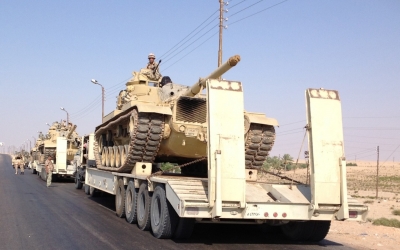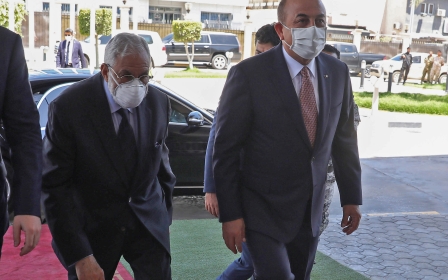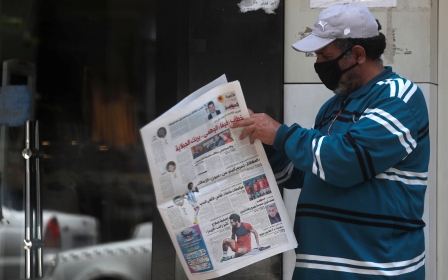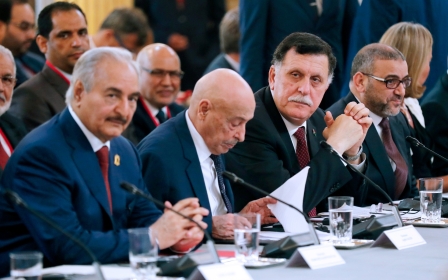Libya unity government calls Egypt threat 'declaration of war'
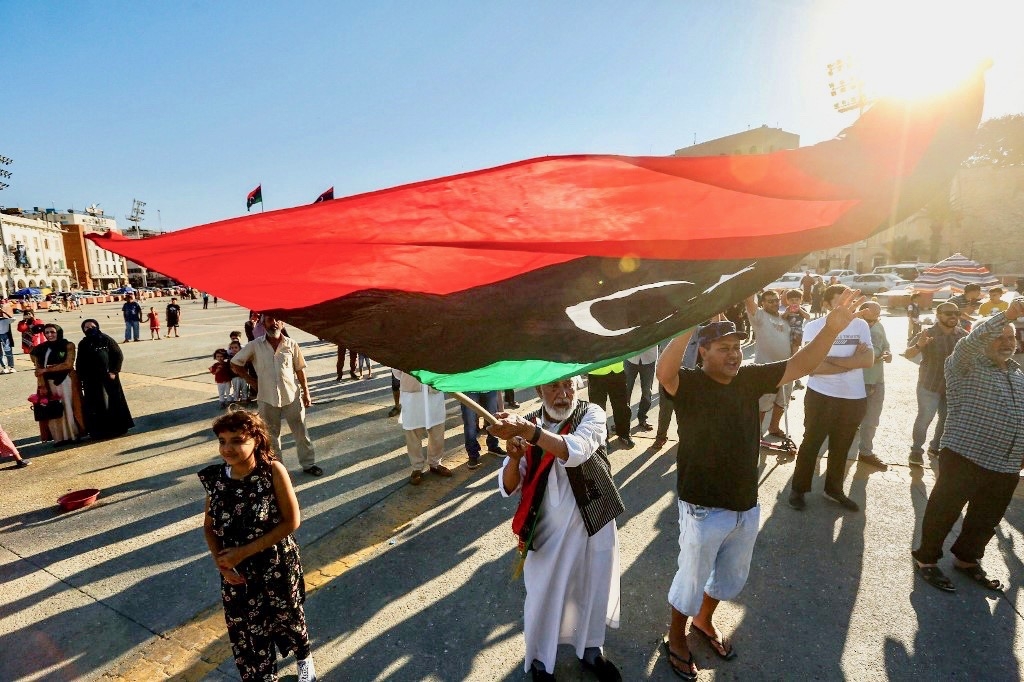
Libya's UN-recognised Government of National Accord (GNA) on Sunday denounced Egypt's warning of military intervention in Libya, labelling it a "declaration of war".
"This is a hostile act, direct interference and amounts to a declaration of war," the Tripoli-based GNA said in a statement.
The war of words comes on the eve of a virtual meeting of Arab League foreign ministers on Libya, in which the GNA has declined to participate, AFP said.
On Saturday, Egyptian President Abdel Fattah al-Sisi warned that if pro-GNA forces advanced on the strategic city of Sirte – 450km (280 miles) east of Tripoli - it could provoke a "direct" intervention by Cairo.
For the Libyan state, "interference in its internal affairs, attacks on its sovereignty, whether by declarations... like those of the Egyptian president or by support for putschists, militias and mercenaries, is unacceptable," the GNA said.
The GNA called on the international community to "assume its responsibilities with regard to this escalation".
It said it was open to "all impartial mediation... under the aegis of the UN" but rejected "unilateral or extrajudicial initiatives".
Al Jazeera's Malik Traina, reporting from the Libyan city of Misrata, said Sisi's remarks on Saturday were largely ignored by the GNA and its forces.
"A GNA military commander we spoke to earlier said their forces are adamant and that they will enter Sirte. It's important to note that these are forces that know the territory well," Traina said.
In 2011, forces primarily from Misrata were responsible for entering Sirte and killing longtime ruler Muammar Gaddafi, he added.
Meanwhile, Egypt's Foreign Minister Sameh Shoukry on Sunday told the Saudi-based Al Arabiya TV his country prioritised a political solution to the conflict, adding that the GNA had misinterpreted Sisi's comments.
Oil-rich Libya has been torn by violence, drawing in tribal militias and mercenaries since the 2011 toppling of Gaddafi in a western-backed uprising.
Since 2015, a power struggle has pitted the Tripoli-based GNA against militia leader Khalifa Haftar, who claims legitimacy from an eastern-based elected parliament.
Haftar has been trying unsuccessfully to seize the capital since April 2019, with support from neighbouring Egypt, Russia and the United Arab Emirates.
Since the start of June, increased Turkish support has enabled pro-GNA forces to take control of northwest Libya, ending Haftar's assault on Tripoli.
Sisi's 'red line'
The GNA advance is now halted outside the coastal city of Sirte, a strategic access point to Libya's key oil fields, which remains under Haftar's control.
Sirte and Al-Jufra to the south represent a "red line", Sisi said in a television broadcast on Saturday, citing the need to protect Egypt's porous border.
If this line is crossed, Egyptian forces will directly intervene in Libya, Sisi said.
"All of Libya is a red line," the GNA responded. "Whatever the dispute between Libyans, we will not allow our people to be insulted or threatened."
'Whatever the dispute between Libyans, we will not allow our people to be insulted or threatened'
- GNA statement
Still, the speaker of Libya's eastern-based parliament, Aguila Saleh, defended Sisi's declaration, saying in a statement on Sunday that the Egyptian president was "responding to our appeal to the Egyptian parliament" last January, in which Saleh called for Egyptian intervention in Libya.
And also on Sunday, the Jordanian foreign ministry issued a statement saying Amman supports Cairo "against any threat to the security and stability" of Egypt.
It came after the foreign ministers of both countries discussed the Libya conflict over the phone.
Middle East Eye delivers independent and unrivalled coverage and analysis of the Middle East, North Africa and beyond. To learn more about republishing this content and the associated fees, please fill out this form. More about MEE can be found here.


